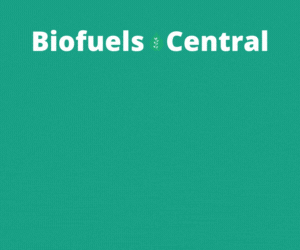Fuelmakers’ biofuels investments dwarf hydrogen, study finds – Euractiv.
Efforts to reduce fossil fuel use in transport overly concentrate on ramping up second-generation biofuels, neglecting synthetic fuels made with green electricity, according to a new study commissioned by green group Transport & Environment (T&E).
The study shows that three-quarters of green investments in refineries go towards biofuels, eight times what is spent on the production of hydrogen and e-fuels.
As pressure increases to reduce carbon emissions in the transport sector, experts agree that not all modes can be easily electrified.
🔥 What about we co-host a webinar? Let's educate, captivate, and convert the biofuels economy!
Biofuels Central is the global go-to online magazine for the biofuel market, we can help you host impactful webinars that become a global reference on your topic and are an evergreen source of leads. Click here to request more details
Additional alternative liquid fuels will be needed to replace kerosene in the aviation sector and heavy oil in the maritime sector, with some stakeholders calling for an increase in their deployment to reduce emissions from combustion engine cars.
Multiple options are currently being developed and scaled up, such as advanced biofuels made from plant residues, animal fats, and used cooking oil, and synthetic fuels made from hydrogen and CO2 extracted from the atmosphere (so-called e-fuels).
However, a study by environmental consultancy Ricardo shows that most investments planned for refineries focus on biofuel production, rather than hydrogen-based alternatives.
While the planned investment into biofuel refining over the next seven years sums up to €28 billion, only €3.3 billion are expected to go into e-fuel-making.
T&E accused oil companies of a mismatch between public statements and actual investment decisions.
Geert Decock, Electricity and Energy manager at T&E, said in a statement, said:
Oil producers are promoting hydrogen as their big bet for the future, but in reality their investments in green hydrogen are pitiful.
“This is not an industry pushing the boundaries of clean technology,” he added.
The eFuel Alliance, an organisation promoting the use of synthetic fuels, told EURACTIV that this can be explained by the lack of incentives to scale up e-fuels.
Jan Werhold, spokesperson said:
It is obvious that investments will be lower if no legal framework is defined by the EU Commission.
“As long as the delegated acts are missing and REDIII [the EU’s renewable energy law] does not set clear requirements for green hydrogen and e-fuels, the investments will not materialise,” he added.
Investments in biofuels exceed sustainable capacity, T&E says
T&E not only criticised the lack of investments in synthetic fuels but also argued that the amount of biofuel that oil companies are aiming for would exceed what can be sustainably sourced by using waste and residues.
The investments foreseen in fuels based on hydrotreated vegetable oil, for instance, would double production capacity in Europe from what it is now to 10 megatonnes by 2030, according to the organisation.
T&E said:
This is four times higher than what can be sustainably sourced in the EU.
T&E said, adding that “this will likely lead to limited ‘waste’ products like animal fats being taken from other industries, as well as mass imports of dubious used cooking oil from abroad”.
However, this claim is disputed by fuel makers and the biofuel industry, which points to a study commissioned by the business-funded research body Concawe.
This “sets out clearly how there is substantial availability of sustainable biomass, mostly in the EU to make advanced biofuels up to 150 million tonnes a year by 2050,” industry group FuelsEurope told EURACTIV in an emailed statement.
Marko Janhunen, Chair of the Advanced Biofuels Coalition told EURACTIV: “Advanced biofuels feedstock and various technologies exist and are readily scalable. Feedstock is usually sourced locally.”
“They can fast-track our efforts to reduce transport emissions and simultaneously reduce our dependence on foreign oil,” he added, pointing out that “while promising future solutions, e-fuels and hydrogen, on the other hand, are at a very early stage of development”.
To invest or not to invest?
Advocates of e-fuels, meanwhile, seem perplexed by T&E’s call for more investments in hydrogen-derived synthetic fuels.
Wehrhold said:
We welcome the fact that T&E is calling for more investment in hydrogen and eFuels, even if they see it differently in their position on the RED.
“There, T&E calls for only 1.6% green hydrogen and eFuels in 2030. The Commission proposal is 2.6% and was increased to 5% under RePowerEU, which is also our position,” he added.
This was confirmed by Benedikt Heyl of T&E, who argues that e-fuels “should be used where direct electrification is not possible”, such as shipping and aviation, but there should be “no incentives for the use of e-fuels in road transport”.
The €3.3 billion invested into the production of e-fuels so far however only represents a quarter of the production capacity that would be required to meet the target T&E is calling for, Heyl added.
“If most of the investment that goes into the (over)production of biofuels were redirected to the production of e-fuels, T&E would very much welcome this,” he said.
READ the latest news shaping the biofuels market at Biofuels Central
Fuelmakers’ biofuels investments dwarf hydrogen, study finds, January 27, 2023








